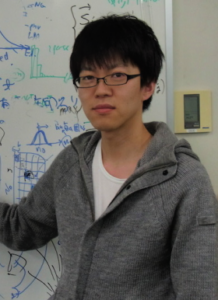
The Department of Neuroscience at Washington University is pleased to announce Naoki Hiratani, PhD, has joined the faculty as an Assistant Professor. Hiratani is a theoretical neuroscientist who has made important contributions to understanding principles underlying synaptic plasticity.
“We are delighted to appoint Dr. Hiratani as part of our expansion in Theoretical and Computational Neuroscience. I am confident he will contribute to establishing WashU Neuroscience as a global powerhouse in this field,” said Linda Richards, PhD, Edison Professor and Chair of the Department.
Hiratani joins WashU from Harvard University where he was a Swartz postdoctoral fellow in Professor Haim Sompolinsky’s lab in the Center for Brain Science. There he studied the computational processes of the binding operation—when the brain combines independent concepts into a single, cohesive representation. Previously, as a graduate student at the RIKEN Brain Science Institute and the University of Tokyo under the mentorship of Professor Tomoki Fukai, Hiratani explored how synaptic plasticity effects efficient learning. He found that multiple synaptic contacts between neighboring neurons serve to feed into Bayesian optimization of synaptic plasticity, a finding that will fuel his work as an independent investigator. During his postdoc in Peter Latham’s group at University College London, Hiratani extended this work to neural circuitry in the olfactory bulb and also investigated the optimality of nonlinear expansion in the olfactory circuits and the scalability of biologically plausible credit assignment algorithms.
At WashU, Hiratani aims to uncover the fundamental principles underlying learning and computation in the brain by developing a theoretical understanding of how the intricate connectivity patterns at both the micro and macroscopic levels, along with complex learning mechanisms, contribute to the brain’s exceptional efficiency. This work can be applied to strengthening the performance of artificial intelligence systems, which is currently surpassed by the brain when it comes to efficient learning from limited data.
Hiratani said WashU is an exceptional place for computational and theoretical neuroscience because of its vibrant scientific community and multiple interdisciplinary research centers and institutes. Notably, the Center for Theoretical and Computational Neuroscience, led by Professor Geoffrey Goodhill, launched this year. “As a new assistant professor, I am excited to collaborate with colleagues who share a passion for understanding the brain’s computational principles,” said Hiratani. “The opportunity to engage in interdisciplinary discussions, attend seminars and conferences, and interact with world-class researchers will undoubtedly foster my scientific endeavor.
“In addition, as a math enthusiast, I am looking forward to living in a city with area code ‘314’. It is fascinating to think someone in St. Louis has the phone number (314)159-2653!”